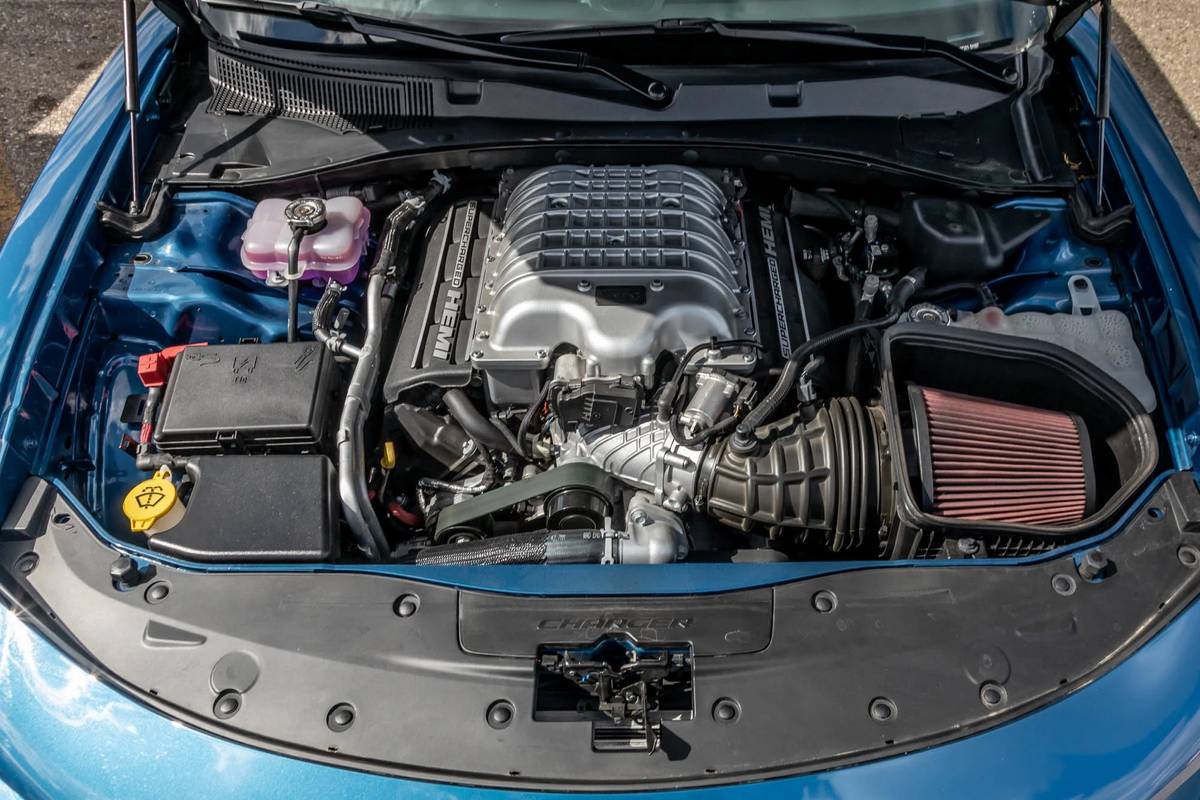Common Causes of Ignition System Misfires Explained
Ignition system misfires can be caused by common factors such as faulty spark plugs or wires, fuel delivery issues, or a malfunctioning ignition coil. These issues can disrupt the proper combustion process, leading to engine misfires and decreased performance.
We will explore the common causes of ignition system misfires, providing you with a better understanding of how to diagnose and resolve these issues. By identifying the underlying causes, you can save time and money by addressing the root problem and ensuring your vehicle runs smoothly and efficiently.
Read on to learn more about the common culprits behind ignition system misfires.
Understanding Ignition System Misfires
What Are Ignition System Misfires?
An ignition system misfire occurs when the fuel-air mixture in the engine fails to ignite properly.
Signs Of Ignition System Misfires
Common signs of ignition misfires include rough idling, hesitation, and reduced fuel efficiency.

Credit: www.ikehonda.com
Common Causes Of Ignition System Misfires
Understanding the common causes of ignition system misfires is essential for maintaining optimal engine performance. When an ignition system misfire occurs, it can lead to a variety of issues such as decreased fuel efficiency, rough idling, and reduced power. By identifying and addressing these common causes, you can prevent further damage and ensure your vehicle runs smoothly. Let’s explore some of the common causes of ignition system misfires.
Faulty Spark Plugs
One of the primary culprits behind ignition system misfires is faulty spark plugs. Spark plugs play a crucial role in igniting the air-fuel mixture within the engine cylinder. Over time, spark plugs can wear out, leading to insufficient spark or a complete lack of ignition. This can result in misfires, which can negatively impact your vehicle’s overall performance. To prevent this issue, it’s important to regularly inspect and replace spark plugs according to your vehicle manufacturer’s recommendations.
Clogged Fuel Injectors
Clogged fuel injectors are another common cause of ignition system misfires. Fuel injectors are responsible for delivering fuel into the engine cylinders. However, over time, these injectors can become clogged with dirt, debris, or residue from fuel. When the fuel injectors are clogged, the proper amount of fuel cannot be delivered, leading to misfires. Regular fuel injector cleaning and maintenance can help prevent this issue and ensure efficient fuel delivery.
Ignition Coil Issues
Ignition coils are vital components that convert the battery’s low voltage into the high voltage needed to create a spark. If an ignition coil fails or malfunctions, it can disrupt the spark delivery to the spark plugs, resulting in misfires. Common issues with ignition coils include deteriorated insulation, internal coil resistance problems, and electrical shorts. Regular maintenance, including inspection and replacement, can help identify and address any ignition coil issues.
Vacuum Leaks
Another common cause of ignition system misfires is vacuum leaks. Vacuum leaks occur when there is an unintended opening in the engine’s vacuum system, allowing excess air to enter. This excess air disrupts the air-fuel mixture, leading to misfires. Common sources of vacuum leaks include deteriorated hoses, gaskets, or intake manifold issues. Identifying and repairing these vacuum leaks is crucial in preventing ignition system misfires.
Diagnosing Ignition System Misfires
Diagnosing ignition system misfires can be crucial to maintaining your vehicle’s performance. Common causes include faulty spark plugs, ignition coils, and fuel injectors. Understanding these issues can help identify and address misfires effectively.
Diagnosing ignition system misfires is crucial to ensure that your vehicle’s engine runs smoothly and efficiently. Ignition system misfires can lead to poor fuel economy, reduced power, and increased emissions. Here’s a look at some of the common methods used to diagnose ignition system misfires.
Using Obd-ii Scanner
An OBD-II scanner is a diagnostic tool that can help identify ignition system misfires by reading the error codes stored in your vehicle’s onboard computer. These codes provide valuable information about which cylinders are experiencing misfires and can guide you in troubleshooting and resolving the issue.
To use an OBD-II scanner:
- Locate the OBD-II port in your vehicle. This usually can be found under the dashboard on the driver’s side.
- Connect the OBD-II scanner to the port.
- Turn the ignition on, but do not start the engine.
- Follow the instructions provided by the scanner to read the error codes.
- Note down the codes and their corresponding cylinders.
Inspecting Spark Plugs And Wires
The condition of your spark plugs and wires can provide valuable insights into the cause of ignition system misfires. Over time, spark plugs can wear out, become fouled, or develop deposits, while spark plug wires can degrade and develop cracks or breaks. Inspecting these components can help identify any issues and allow for the necessary repairs.
To inspect spark plugs and wires:
- Open the hood of your vehicle.
- Locate the spark plugs and wires. Refer to your vehicle’s manual if needed.
- Carefully remove the spark plug wires, one at a time, without pulling on the wires themselves.
- Inspect the spark plug for signs of wear, fouling, or deposits.
- Check the spark plug wires for any visible damage, such as cracks or breaks.
- If necessary, replace any faulty spark plugs or wires.
By utilizing the methods mentioned above, you can effectively diagnose ignition system misfires in your vehicle. Remember, if you’re unsure about any aspect of the diagnosis or repair process, it’s always best to consult a qualified mechanic to ensure the proper resolution of the issue.

Credit: www.jdpower.com
Preventing Ignition System Misfires
Misfires can disrupt engine performance & cause damage. How to prevent ignition system misfires:
Regular Maintenance
Regular maintenance crucial for preventing misfires. Ensure spark plugs & ignition components checked often. Replace worn-out parts timely to avoid misfires. Regular tune-ups increase engine efficiency & reliability.
Using High-quality Fuels And Oils
Quality fuels & oils essential for optimal engine function. Poor quality fuels can lead to misfires. Use fuel additives to maintain fuel system cleanliness. Select oils meeting manufacturer’s specifications for best performance.
Seeking Professional Help
When it comes to dealing with ignition system misfires, there may come a time when seeking professional help becomes necessary. Despite DIY efforts, some issues require the expertise of a qualified mechanic or auto repair shop. Knowing when to consult a mechanic and how to choose the right auto repair shop can make a significant difference in the resolution of ignition system misfires.
When To Consult A Mechanic
Identifying when to consult a mechanic for ignition system misfires is crucial. If the check engine light is on, the engine is experiencing frequent misfires, or there are abnormal engine noises, it’s advisable to seek professional assistance. Ignoring these signs can lead to more severe engine problems.
Choosing The Right Auto Repair Shop
- Look for a well-established shop with a good reputation in handling ignition system issues.
- Ensure the mechanics are ASE certified and have experience with ignition system diagnostics and repairs.
- Ask for recommendations from friends, family, or online communities for trusted repair shops.
- Get estimates from multiple shops and inquire about warranty options on the repairs.

Credit: www.cars.com
Frequently Asked Questions On Common Causes Of Ignition System Misfires Explained
What Are The Three Most Common Causes Of A Misfire?
The three most common causes of a misfire are faulty spark plugs, fuel system problems, and engine timing issues.
How Do You Tell What Is Causing A Misfire?
To determine the cause of a misfire, carefully inspect the spark plugs, ignition coils, and fuel injectors. Analyzing diagnostic trouble codes and conducting a compression test can also help identify the issue. Proper maintenance and regular inspection of these components can prevent misfires from occurring.
What Would Cause A Misfire Besides Spark Plugs?
Besides spark plugs, a misfire can be caused by a faulty ignition coil, fuel injector, or oxygen sensor. Other potential culprits include a clogged fuel filter, vacuum leak, or a problem with the engine’s compression.
What Causes A Misfire And How Do You Fix It?
A misfire can be caused by faulty spark plugs, ignition coils, or fuel injectors. To fix it, replace the damaged components and ensure proper fuel and air mixture. Regular maintenance and tune-ups can prevent misfires.
Conclusion
Understanding the causes of ignition system misfires is crucial for maintaining vehicle performance. By recognizing common issues like worn spark plugs or faulty ignition coils, you can effectively troubleshoot problems. Regular maintenance and addressing issues promptly can prevent misfires and ensure your engine runs smoothly.
Stay informed and proactive!

